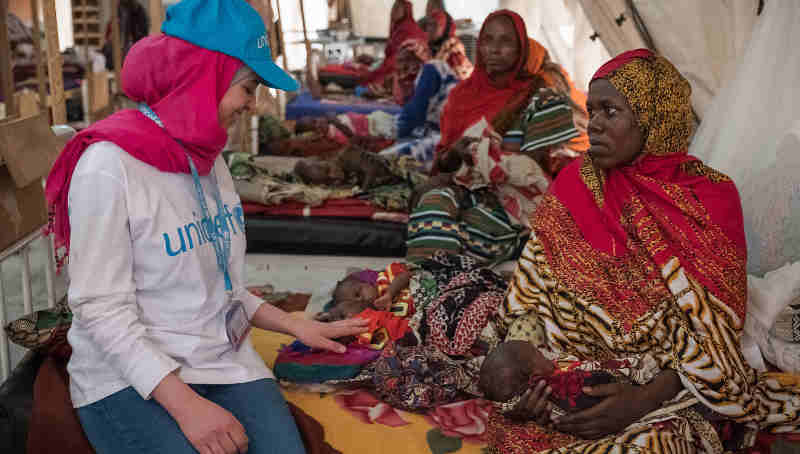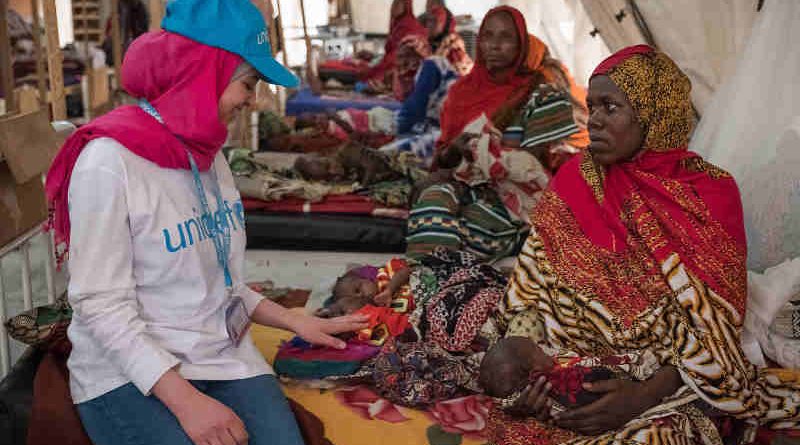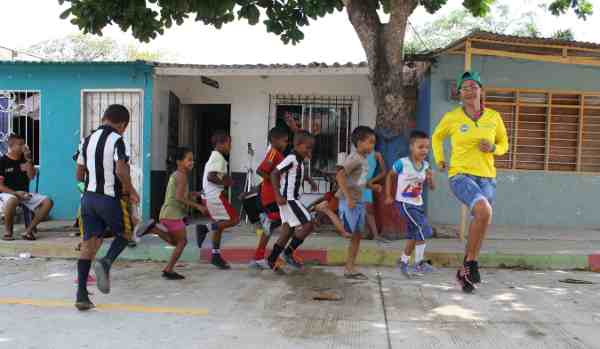25 Million Children Out of School in Conflict Zones: UNICEF

More than 25 million children between 6 and 15 years old, or 22 per cent of children in that age group, are missing out on school in conflict zones across 22 countries, UNICEF said today.
“At no time is education more important than in times of war,” said UNICEF Chief of Education Josephine Bourne. “Without education, how will children reach their full potential and contribute to the future and stability of their families, communities and economies?”
At the primary school level, South Sudan has the highest rate of out-of-school children with close to 72 per cent of children missing out on education. It is followed by Chad (50 per cent) and Afghanistan (46 per cent). The three countries also have the highest rate of girls who are out of school, at 76 per cent for South Sudan, 55 per cent for Afghanistan, and 53 per cent for Chad.
At the lower-secondary school level, the highest rates of out-of-school children are found in Niger (68 per cent), South Sudan (60 per cent) and the Central African Republic (55 per cent).
Out-of-school rates for girls spike for this age group, with nearly three quarters of girls in Niger and two in three in both Afghanistan and the Central African Republic not in school.
[ Who Is Responsible for Crimes and Corruption in Delhi Schools? ]
To help drive an increased understanding of the challenges children affected and uprooted by conflict face in accessing school, 19-year-old Syrian refugee and education activist Muzoon Almellehan, dubbed ‘the Malala of Syria’, travelled to Chad, a country where nearly three times as many girls as boys of primary-age in conflict areas are missing out on education.
Muzoon met a 16-year-old girl who was abducted by Boko Haram outside her school in Nigeria at the age of 13 and was drugged, exploited and abused for three years before fleeing to Chad.
Muzoon also met children who are able to get an education for the first time, and community members who, like her once, are risking it all to get children into school.
“Conflict can take away your friends, your family, your livelihood, your home. It can try to strip you of your dignity, identity, pride and hope. But it can never take away your knowledge,” said Muzoon. “Meeting children in Chad who had fled Boko Haram reminded me of my own experiences in Syria. Education gave me the strength to carry on. I wouldn’t be here without it.”
UNICEF works in conflict-affected countries to get children back to learning, by providing catch-up education and informal learning opportunities, training teachers, rehabilitating schools and distributing school furniture and supplies.
💛 Support Independent Journalism
If you find RMN News useful, please consider supporting us.




